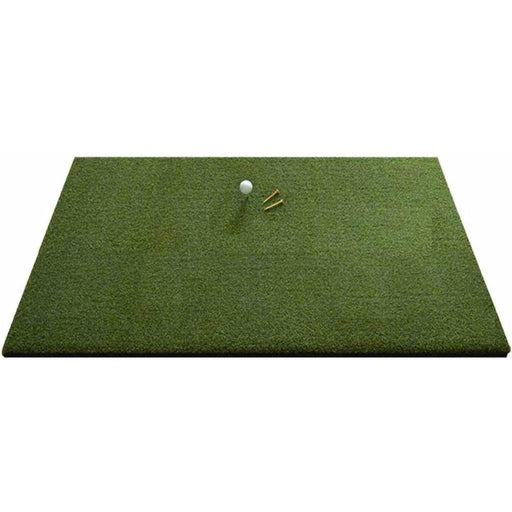
How Golf Simulators Boost Memory and Cognitive Function
In the pursuit of improving our golf game, we often focus on perfecting our swing mechanics, honing our putting skills, and mastering course management strategies. However, what many golfers may not realize is that the benefits of playing on a golf simulator extend far beyond the fairways and greens – they can also have a positive impact on our memory and cognitive function. In this article, we'll explore how golf simulators help sharpen our mental acuity and enhance our memory retention, backed by compelling statistics and research.
- Engaging Visual and Spatial Memory: Golf simulators provide a visually immersive experience, allowing players to navigate virtual courses with stunning realism and detail. This visual engagement stimulates our spatial memory – the ability to remember and navigate spatial environments – which is essential for accurately assessing distances, planning shots, and visualizing course layouts. According to a study published in the Journal of Cognitive Psychology, engaging in spatially demanding activities like golf can improve spatial memory performance by up to 20%.
- Enhancing Decision-Making Skills: Golf is a game of strategy and decision-making, requiring players to evaluate various factors such as wind conditions, terrain, and club selection to make informed choices on the course. Playing on a golf simulator reinforces these decision-making skills, as players must adapt to changing circumstances and execute strategic shots in real-time. Research conducted by the University of Illinois found that regular engagement in decision-making activities can lead to improved cognitive function and memory retention over time.
- Improving Working Memory Capacity: Working memory – the ability to hold and manipulate information in the mind over short periods – plays a crucial role in golf, as players must remember swing mechanics, yardage distances, and course strategies throughout a round. Studies have shown that engaging in mentally stimulating activities, such as playing golf on a simulator, can enhance working memory capacity and cognitive flexibility. According to data from the American Psychological Association, adults who engage in regular cognitive exercises experience a 47% reduction in the risk of developing cognitive impairment later in life.
- Boosting Brain Health and Neuroplasticity: Playing on a golf simulator not only challenges our memory and cognitive function but also promotes overall brain health and neuroplasticity – the brain's ability to adapt and reorganize neural pathways in response to new experiences. Research published in the Journal of Aging and Health suggests that engaging in mentally stimulating activities, such as virtual golf, can delay cognitive decline and improve cognitive reserve, leading to better memory retention and cognitive function in older adults.
In conclusion, golf simulators offer more than just a fun and immersive way to practice your swing – they also provide a valuable opportunity to exercise your brain and enhance your memory and cognitive function. By engaging in visually stimulating activities, honing decision-making skills, improving working memory capacity, and promoting brain health and neuroplasticity, golf simulators offer a holistic approach to mental fitness that can benefit players of all ages and skill levels. So, the next time you step onto the virtual course, remember that you're not just improving your golf game – you're also giving your brain a workout that pays dividends both on and off the links.

Have Questions About Golf Simulators?
Our expert team is here to help you find the perfect golf simulator for your needs.
Featured products
-
SkyTrak+
Original price $2,995.00 - Original price $3,145.00Original price$2,995.00 - $3,145.00$2,995.00 - $3,145.00Current price $2,995.00Introducing the SkyTrak+ Launch Monitor: Unmatched Accuracy and Advanced Features Experience a new level of precision and innovation with the SkyTr...
View full details -
ProTee Majestic Simulator Package
Original price $9,618.00 - Original price $13,848.00Original price$9,618.00 - $13,848.00$9,618.00 - $13,848.00Current price $9,618.00ProTee Majestic Golf Simulator Package: Elevate Your Indoor Golf Experience Transform your home or business into a golfer’s dream with the ProTee M...
View full details -
Eagle Golf Mat
Original price $370.00 - Original price $1,130.00Original price $370.00$370.00$370.00 - $1,130.00Current price $370.00Introducing the Eagle Golf Mat: The Ultimate Golf Experience Are you passionate about golf and demand nothing but the very best in your practice eq...
View full details -
Retractable HomeCourse® Golf ProScreen 180
Original price $2,299.00Original price $2,299.00 - Original price $2,299.00Original price $2,299.00Current price $1,999.00$1,999.00 - $1,999.00Current price $1,999.00HomeCourse® Golf ProScreen 180 HomeCourse® Golf ProScreen 180 is a retractable golf screen and enclosure. HomeCourse® Golf ProScreen 180's ballisti...
View full details -
The Augusta V2 4'x12' 2 Cups
Original price $399.00Original price $399.00 - Original price $399.00Original price $399.00Current price $329.00$329.00 - $329.00Current price $329.00The Augusta is one of Big Moss’ traditional models. It offers unmatched versatility for teaching and year round practice. Make a long-term investme...
View full details





